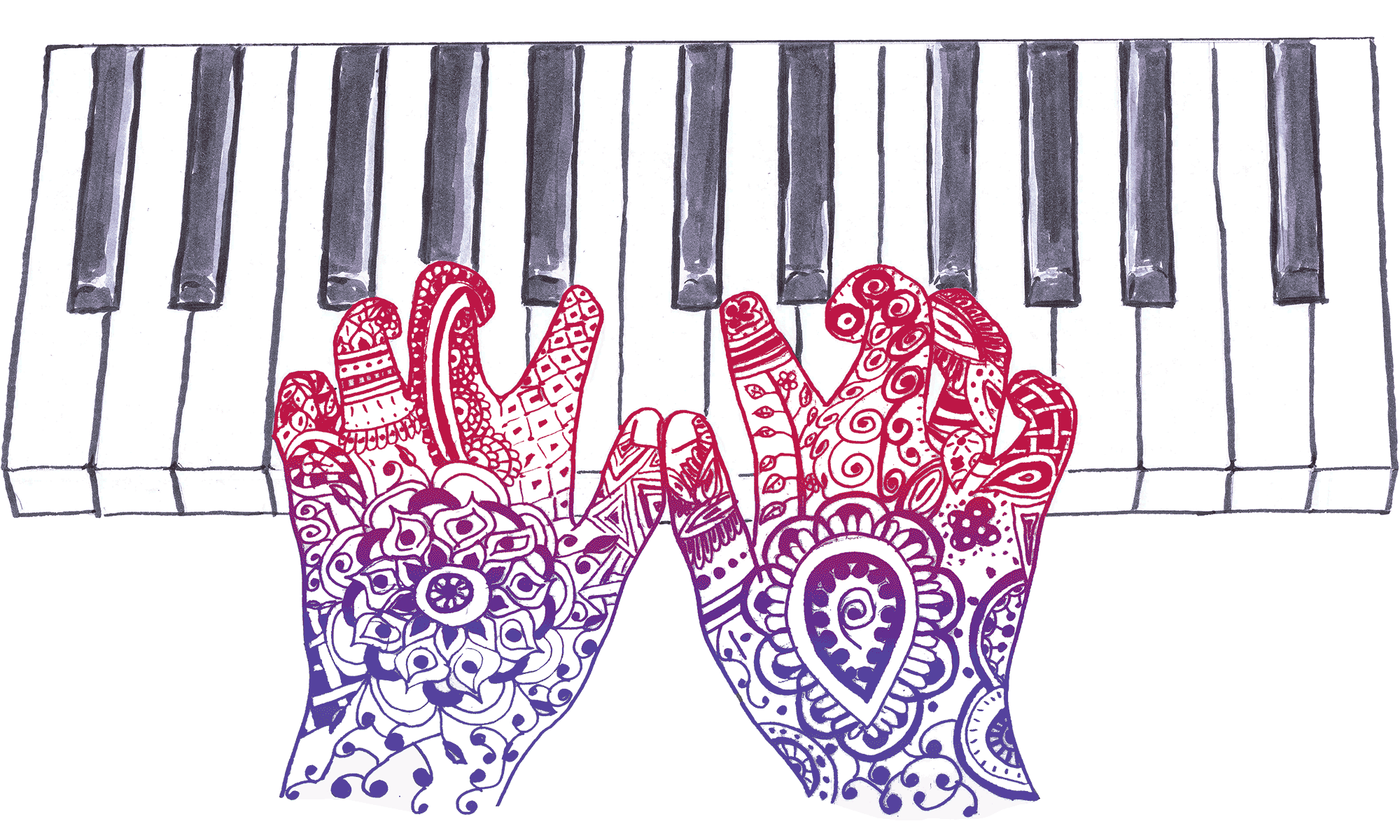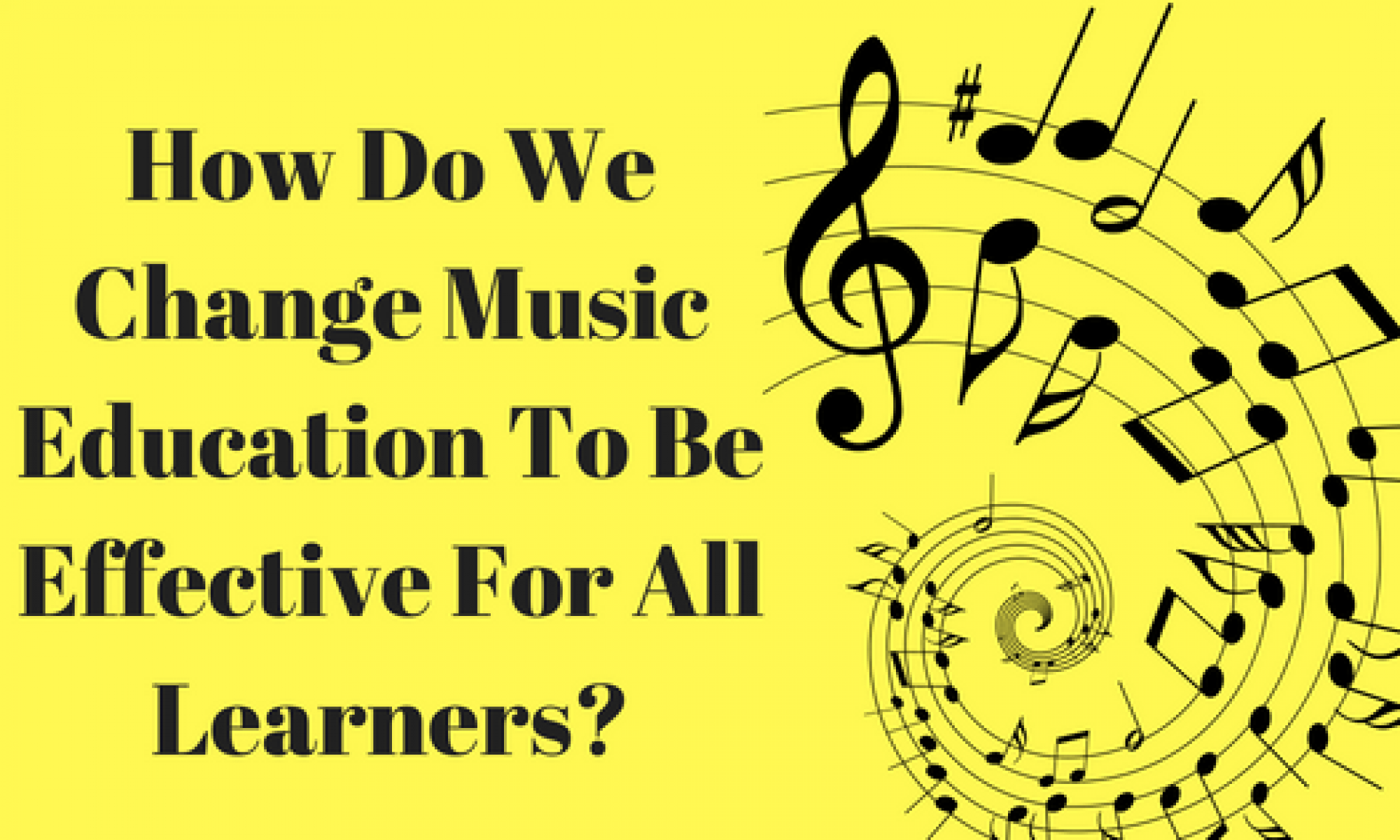One-on-one lessons should have learning plans tailored to meet students goals and pace; not be a pre-packaged process where the teacher teaches everyone exactly the same way with the same music. Students are often taught in a way that is not only unexciting but isn’t designed give them the specific tools they’ll need to do what they want to do with music.
Obstacles holding each learner back need to be evaluated and focused on first. Whether this is building focusing stamina, managing frustration, playing in time, using good fingerings, understanding concepts, dexterity, note-reading, etc. Sometimes until the main obstacle is removed, learning can’t happen. For instance, if the student gets frustrated easily and resists repeating things, it’s going to be hard to get traction. There are strategies that work. Teachers need to be invested in learning how to deal with a multitude of issues so they have tools ready to address problems as they happen.
Teachers need to get better at actually diagnosing what is holding students back instead of assuming students aren’t trying or aren’t listening. You can’t address a problem if you’ve misdiagnosed what’s wrong. Learning to pay attention to the information that students give by their actions, words and body language gives valuable insight.
Teachers need to build trust so there can be an open, judgement-free dialogue with students about what they are experiencing and how they are feeling. Students often don’t want to disappoint their teachers or admit things that may make them feel stupid. They don’t have the perspective of seeing other people’s learning experience, only their own so they don’t know a lot of struggles are common. I much prefer students being honest about what they like, what they want and how they’re feeling. Otherwise I have to rely on instinct and guessing. I want my students to be happy and successful in reaching their musical goals.
Don’t assume that just because something looked easy for a student to do that it FELT easy for them. I recently saw a teacher arguing with a student about how easy something was for them. The student didn’t want to play the part again and said, “It’s too hard.” The teacher said, “You just did it. That was so easy for you!” I know the teacher had the best of intention, but that student was giving them valuable feedback that they were ignoring. That’s an opportunity to get to the bottom of why that felt hard to the student. Is it because they have a low focusing stamina and haven’t learned yet that repetition is part of learning? Is it that they were using their working memory to do too big of a chunk and it felt mentally taxing. It often can look like a student has something automatic before they’ve truly mastered it. Students don’t fight the easy stuff. If they’re giving pushback, there is a struggle there somewhere. A lot of teachers or parents will immediately jump to the conclusion that the student is just being difficult or lazy.
Teachers should focus efforts on working within the boundaries of what they have, not what they wish they had. Assume most people will practice very little or not at all. This means adjusting goals to make sure progress can happen in the lesson. Yes, it can be done! Take concepts you want to master whether it’s a note-range of reading or a set of chords and do as many activities and songs as you can with those in it. This way the student is mastering a skill while not being stuck on the same song for too long. Months on the same song without progressing doesn’t feel good for teacher or student.
Put the focus on what the teacher CAN control which is making progress during the lesson instead of on what happens with students when they are at home. It’s very difficult for teachers to change what happens in the home environment.
Learning strategies need to be adjusted to work with how people actually have music as a part of their lives instead of how teachers wish it was. Method Books are still being used from 50-100 years ago and even newer ones are still following the same format as the old ones. We’ve learned a lot about how to learn, memory and how the brain works since then. That information should be being used to create curriculum that is more effective. Today’s student is also not the same as a student 50 years ago. Today’s kids have a lot of commitments and choices competing for their time.
Make reasonable goals that can be maintained over the long haul. Although learning the piano is most successful when it’s approached as a long term project, it shouldn’t be a burden or drudgery. Music should add to student’s lives not add guilt or unhappiness.
Don’t expect students to do the ‘hard work’ at home. Tackle the hard stuff in the lesson where they have support and guidance. They will be more likely to practice it if they can already do it when they walk out of the lesson. Playing it during the week will solidify the learning and make it automatic.
Learning an instrument shouldn’t be all discipline or all love. The all-discipline approach tends to drive the joy out of learning while the all-love approach accomplishes very little real learning. It needs to strike the balance between the two.
Learning music should be a combination of structure and freedom. Students need to have the structure to build a good foundation and understand how music works but freedom also needs to be nurtured. Musicians stop having ideas when they’re discouraged or corrected every time they try to do things their own way. I’ll give an example, I was working with a young drummer the other day who is just beginning. I gave him a specific pattern he had to play every time during the A section of a song (which I was playing along with him on the piano). Then I told him he could do whatever he wanted in the other sections. Did he do a lot of things that didn’t make sense? Sure, but he also did some things that were pretty musical and got the satisfaction of being creative. Down the road, the conversation can begin about how to recognize the idea gems and develop them. What works, what doesn’t and why.
What am I personally doing to contribute to music education?
-
- Changing lives one at a time through the students I teach.
-
- Mentoring other teachers to help broaden their perspective and add new tools to their teaching skill set.
-
- Creating Content for teachers, parents and students to make learning engaging and effective.
- Writing to educate on both music and learning.

